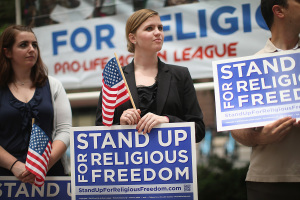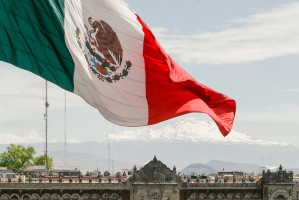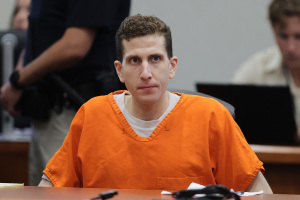What Pluralism Really Is
When we dismiss pluralism as nothing more than moral relativism, we make a huge mistake. Failing to understand what it is – a forum for debate, influence and decision making – we forgo its ability to influence and lose opportunities for witness.
Pluralism does not mean a mishmash of beliefs. It is the forum in which ideas are debated and hashed out. In our public forums (media, government, education, etc.) the opportunity is available for a plurality of ideas to compete for influence.
Forums allow anyone to put forward an idea, a proposal, a policy, a recommendation or countering arguments. So when you hear a preacher or pundit dismissing pluralism as if it undermines biblical faith and Christian witness, tell them to think again. If we get this wrong and mistake it for an anti-biblical notion rather than a place and opportunity for influence, we cave in, unprepared to engage in a rigorous defense of biblical faith, giving way to other agendas in the public sphere.
Two years ago Mark Burnett (producer of "Survivor," "Celebrity Apprentice," "The Job," "Shark Tank" and "The Voice") and his wife, Roma Downey, were asked to invest in a film designed to show how the Bible is untrustworthy. Instead they did the opposite. They produced the first docudrama series called "The Bible," from Genesis to Revelation. They used what cultural pluralism offers and entered into public debate, showing the very opposite of what they had been invited to produce.
Too often we assume "pluralism" is moral relativism: all moral questions are relative – to an age, people or society, with no absolutes. While moral relativism dominates our public discourse, a pluralistic model of public decision making gives permission and opportunity to challenge it as the presumptive view.
Pluralism is not about relativism. It is a social agreement that says, people with differing views have a right to have them heard and explored. Now getting them heard is not easy, but that's where will, determination and creativity come into play. (And though most often platforms of discourse are dominated by those rejecting the very idea of moral absolutes, that doesn't mean we are excluded.)
Marriage is a plurality, a community of two, two with views that correspond and those that don't. Neither is dismissed for holding to their reasons. Each recognizes the validity of the other even if they might disagree with their underlying assumptions. Expand this visual image of what we mean by the plurality of ideas to any forum of public influence and decision making.
So it is within media and its various debates. Take a public issue such as sexuality. Across the medical, religious, legal and political arguments, many voices weigh in. Pluralism, as an accepted social construct of how decisions are made, affirms the right of various views to he heard. And here is the catch. If one assumes they will be rejected and then decides to be silent, that voice is shut down by the very one who has the right to speak. No one said they couldn't. It was they who decided, in effect silencing themselves.
Pluralism is an opportunity for Christians to speak within that public space. But it only happens when Christians choose to engage. Consider these aspects of pluralism and what it offers for effective engagement.
It is a social instrument that (at least those of us in an open and democratic society) affirms the right of groups, people and organizations to have their say.
On some issues, public and legal views are so one-sided it leaves the impression that a counter view will get demolished, or worse, disallowed. However we either decide to engage or not. We take advantage of the publicly agreed-on model pluralism offers or we don't.
A few years ago while appearing before the parliamentary justice committee in Ottawa, as I began offering a dissenting view, a MP spoke up: "Dr. Stiller, how can you even go there since this is a pluralistic society?" I diverted from my defense and launched into a mini lecture on pluralism. The trap he had fallen into was assuming pluralism meant that an idea based on a moral absolute was out of place. My point was this: his trying to shut me down made him complicit in tearing down this valuable means of public discourse – pluralism.
In North America – for much of the 20th Century – Evangelical Christians were silent on one primary count: public sphere matters were seen as outside our concerns. We stayed inside our religious community and let others run the world.
The tide turned. Slam bam, we faced public views and policies that threatened our freedoms. But because we hadn't been at the table, we had no voice. Pluralism had been offered but since we had not taken up the opportunity, other prevailing views won out.
Imagine a table of debate and decision making, be it for public sentiment, governmental policy, educational plans, environmental initiatives or zoning by laws. Whose voice gets heard? Those at the table. And why are they there? Because it matters to them: they know what they want, have developed the logic of their argument, have been trained to speak in that forum and have taken the trouble to get organized and appear.
Today some countries are attempting to pass anti-conversion laws, making it a criminal offense to either convert or cause another to convert. The argument used is clever. It uses human rights language and argues that a person's human rights are violated in conversion.
On the global front, Christian communities from Rome to Canterbury to Washington are opposing this on the basis of religious pluralism as a working model. It stands up against the prevailing view, showing an opposing view.
But shoes need to be worn on both feet. In listening to some religious conservatives, their language suggests because they view their country as Christian in its founding, other religions have no right to press their religious views in our backyard. Not only is that unchristian, it creates problems for the witness of the Gospel elsewhere. If within a Muslim-majority country, how can we press for opportunity of ministry not allowed at home?
Pluralism is a superb environment in which Good News evangelism can take place, for personal conversion and influencing society. Making known the Christian story requires presence, meaning, rational and convincing. It also allows for the sharing of the Good News as applicable to the person and wider society. Here Jesus' metaphors of salt and light apply. The Gospel saves and illumines both the person and his or her world. Sitting at the table where decisions are made – on a whole number of societal fronts – is about being his evangel.
Its time to forgo our moaning over how unfair the world is to our views and concerns and exercise the opportunities a pluralistic model affords.
To restate an old political proverb, the argument has already been lost when we remain silent.





























